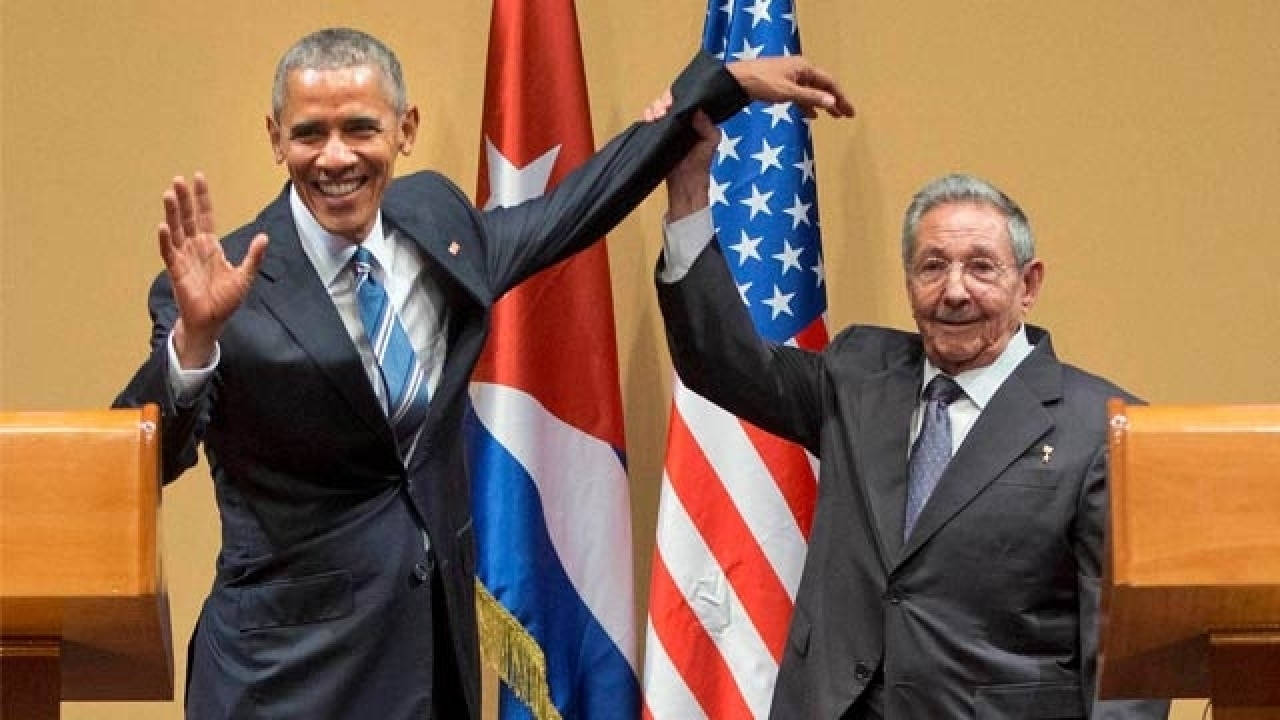
So, has the Cold War in the Western Hemisphere ended? That is the question that crops up as political observers and analysts consider United States’ President Barack Obama’s visit to Communist Cuba and shakes hands with his counterpart, Raul Castro, brother of Fidel Castro. For about 40 years, the Central Intelligence Agency (CIA) and the Cuban refugees in the US tried very hard to bump off the elder Castro and failed. They also tried to engineer a counter-revolution that would end the dictatorship of one of longest-standing communist leaders. But failed in that too. The Cuban refugees settled down in their adopted country and became part of Florida and national politics.
Cuba had its own set of problems. Dissent was suppressed. Though there were houses, schools and hospitals for the majority, the people were not too happy. They wanted that elusive thing called freedom with no guarantee of food, shelter and clothing. Perhaps, the older Castro deserves some praise for making the Communist system work, however badly. But the fall of Soviet Union in 1991 forced the man in Havana to make small changes to adapt to the new scenario. The Communist system might have grown weak, but Castro’s opponents seemed to have no political credibility in the eyes of the large number of Cuban people. They seemed nothing more than Washington’s mercenaries. It is an essential reason for Castro’s survival long after he had ceased to matter.
Perhaps, the best way of describing the situation in Cuba and the US’ obsessive anti-Communist, anti-Castro hostility is that it all ended in a stalemate. What Obama and younger Castro have done is shake hands across the arid gulf of ideology.
President Castro is seen as more pragmatic than his older brother, but there is little doubt that he remains a Communist and that he is not too eager to turn the island-country into a multi-party democracy. He is, however, willing to allow American businesses and investors to come into the country and revive the economy. For the moment, the Communist government in Cuba will continue unchallenged. It is not going to be the case that Cuba will ever become a client-state of its bigger northern neighbour as it was in the first half of the 20th century.
American policy-makers do not consider Communism to be the arch-fiend anymore. That place is now taken over by jihadi terrorism. So, it should not come as a surprise if Castro and his successors are able to forge a flexible one-party Communist system like in China, and the Americans would maintain a hands-off policy as far as the political system goes, while seeking access to Cuban markets.
It might be the case that if travel restrictions ease between the two countries, more Cubans may want to cross over to the mainland, find jobs and earn money, and even choose to settle in the US. That should not pose any existential challenge to stay-at-home Cubans. Washington policy-makers have no other option but to accept the fact that Cuba, like other central and Latin American countries, would fiercely assert its political independence, and it may not even agree to be a passive economic partner.
Many Americans, including many of the former Cuban refugees, may want to use their wealth to enjoy the good life that many Cubans and Latinos are so fond of. What the rich American-Cubans would not be able to do is to play any meaningful role in Cuban politics.